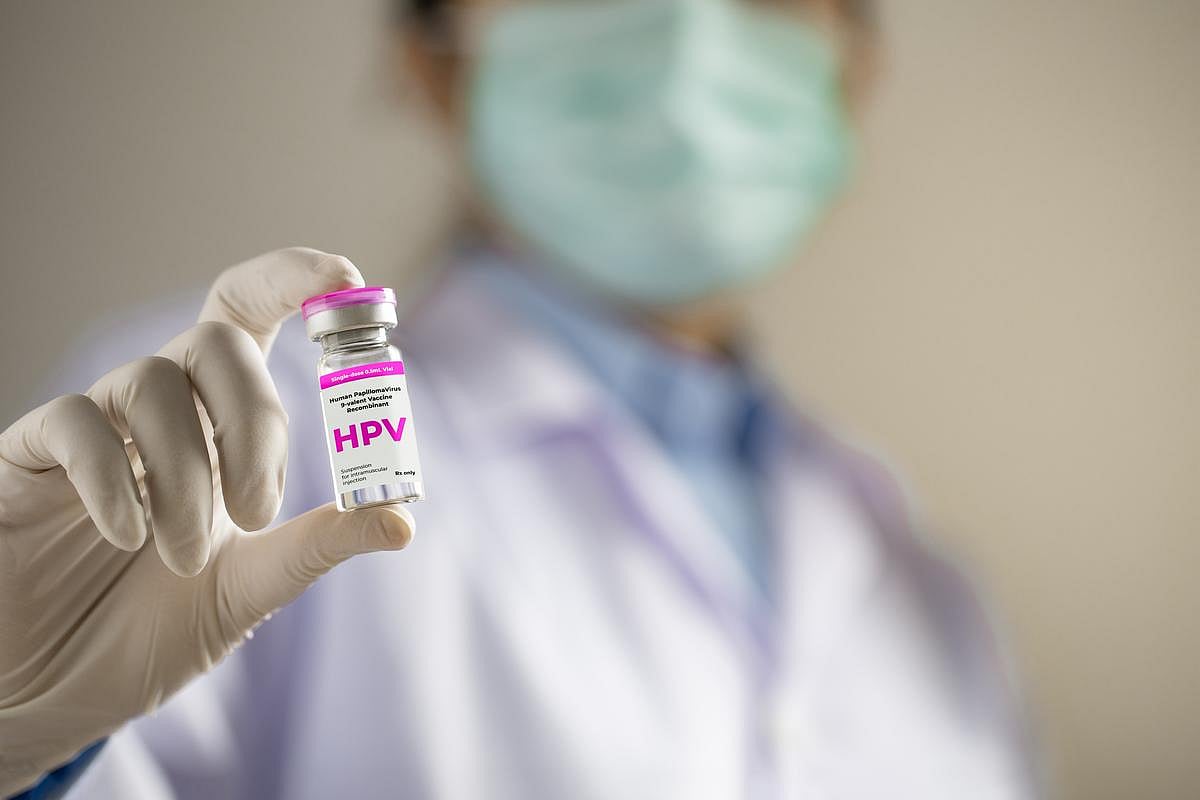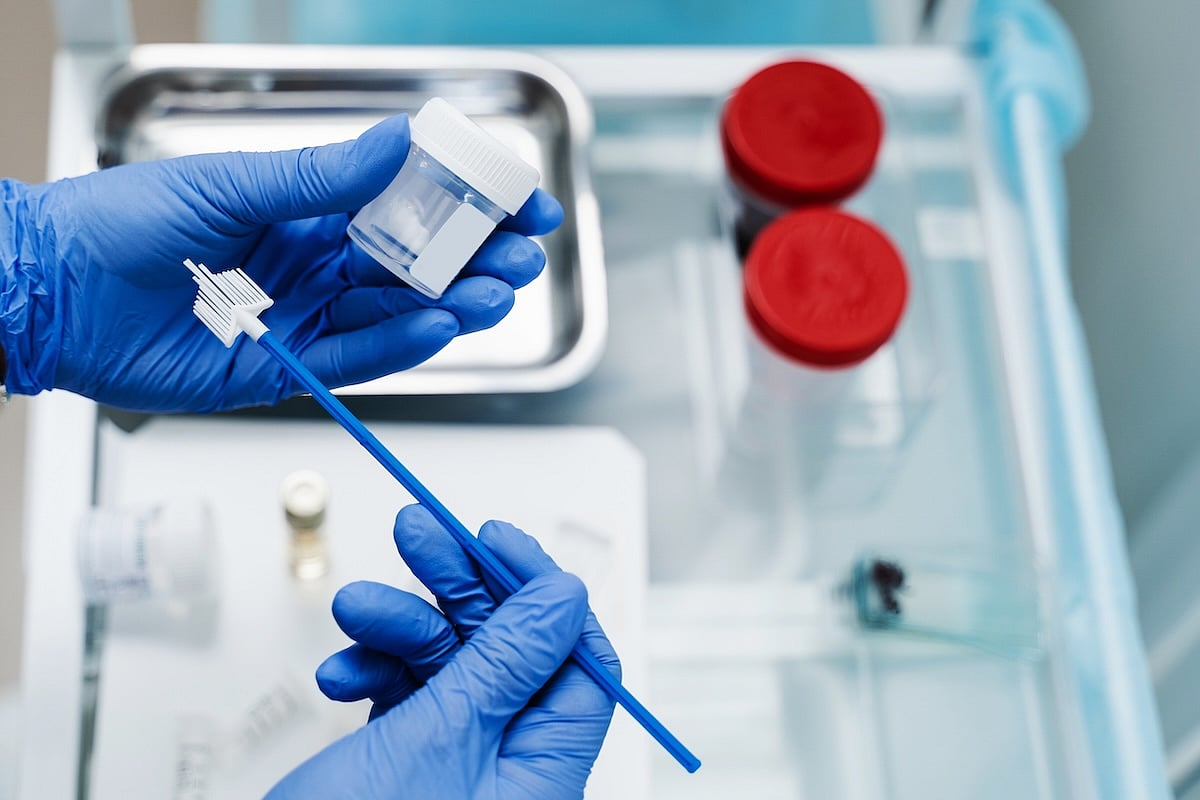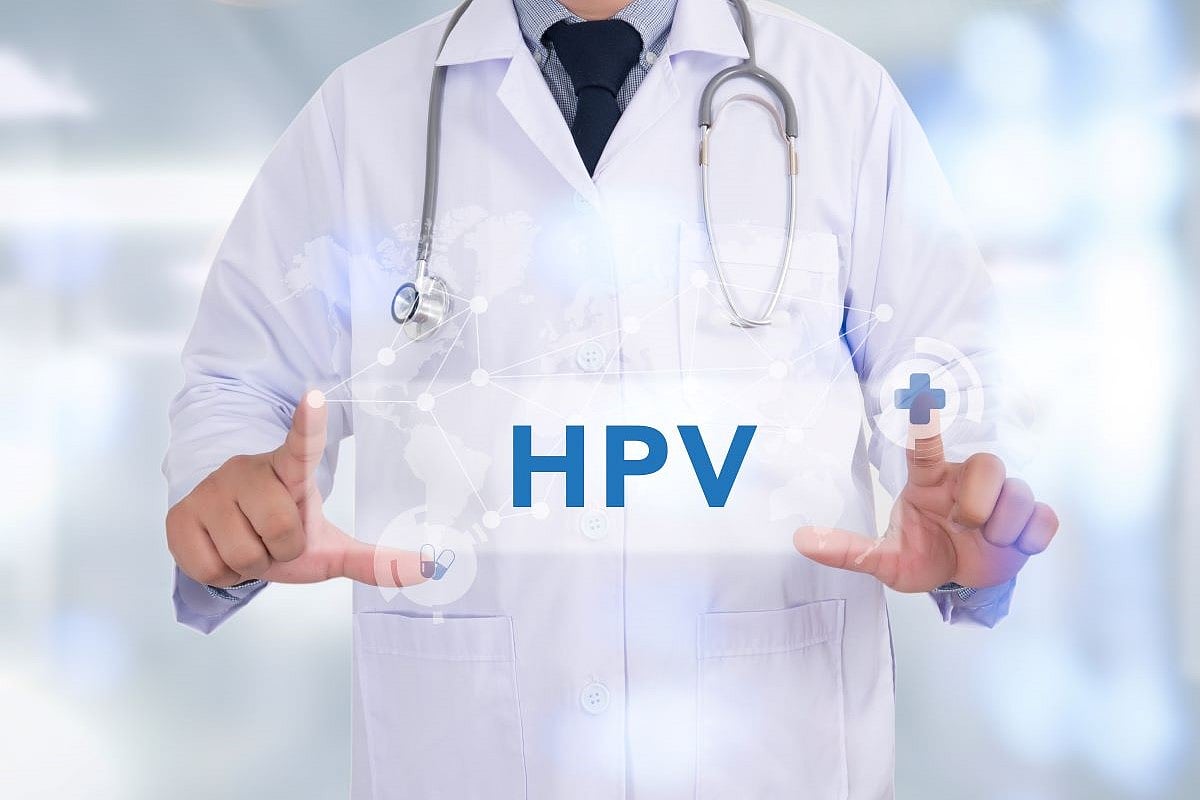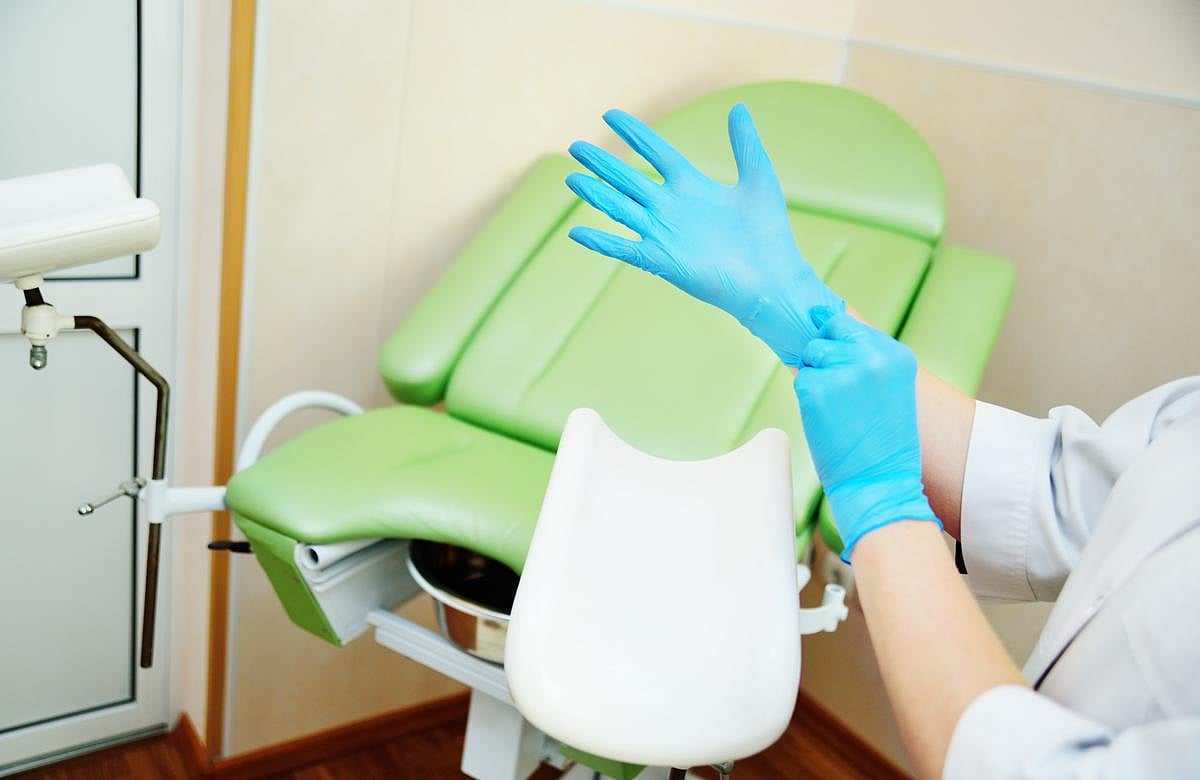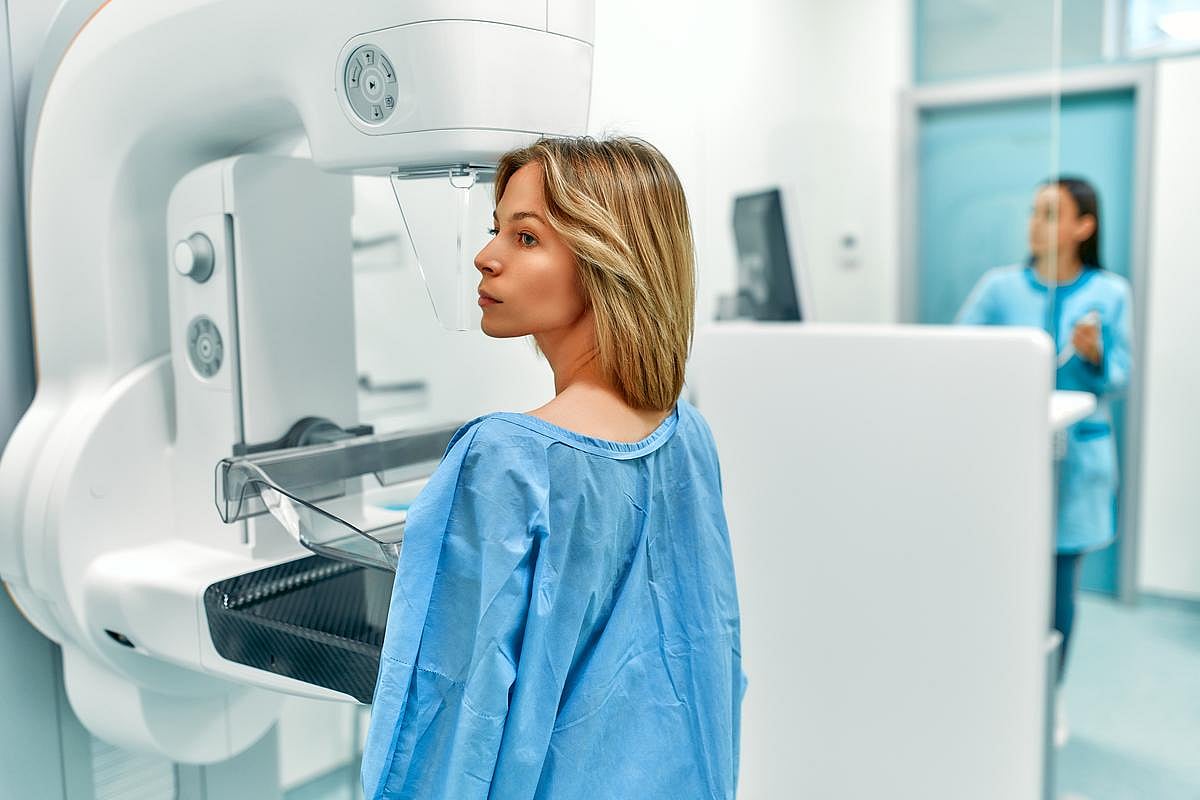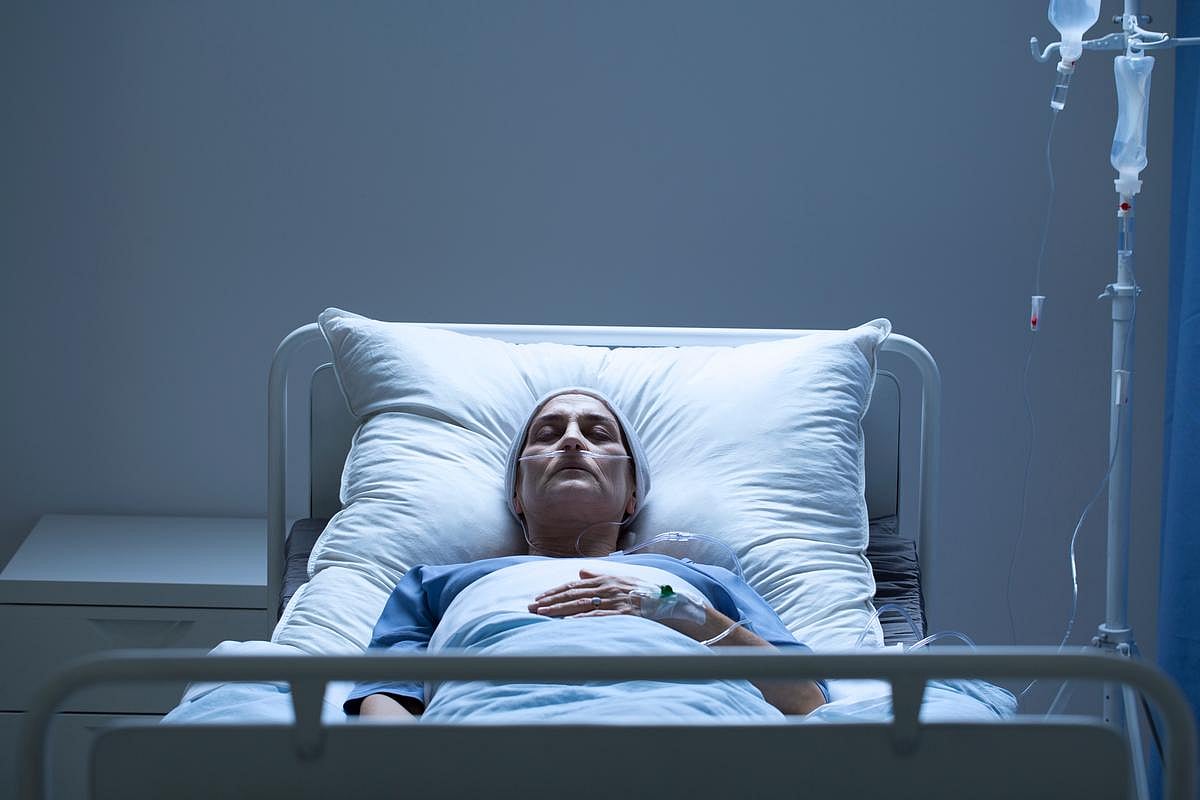Recursos del Paciente
Manténgase sano!
Resultados de su búsqueda "Cancer: Cervical".
07 Jan
New Cervical Cancer Screening Guidelines Give Women More Options
A major update expands guidelines on how women should get screened for cervical cancer — and requires most insurers to cover the full process.
15 Aug
HPV Cancer Awareness: Dangerously Low
A new survey finds only 1 in 3 adults in the U.S. have heard of the HPV virus that causes oral and cervical cancer… and even fewer know there's a preventive vaccine.
Resultados de noticias de salud - 54
Cervical Cancer Rates Plummet Among States With High HPV Vaccination Rates
- Dennis Thompson HealthDay Reporter
- February 24, 2026
- Página completa
Cervical cancer rates are plummeting in states with higher rates of HPV vaccination, a new study reports.
Overall, cervical cancers have declined by 27% among young women i...
Most Women Wary Of At-Home Cervical Cancer Tests, Researchers Find
- Dennis Thompson HealthDay Reporter
- February 10, 2026
- Página completa
At-home cervical cancer screening is meant to be a revolution in preventive care, by providing an easy option for women who’d rather not be poked and prodded at a doctor&rs...
Widespread HPV Vaccination Could Dramatically Cut Cervical Cancer Screenings
- Dennis Thompson HealthDay Reporter
- February 3, 2026
- Página completa
American women might need only two to three cervical cancer screenings their entire lives if HPV vaccination becomes more widespread, a new study says.
Women vaccinated aga...
U.S. Backs At-Home HPV Testing to Boost Cervical Cancer Screening
- I. Edwards HealthDay Reporter
- January 6, 2026
- Página completa
Women may soon have an easier, lower-cost way to get screened for cervical cancer.
Federal health officials say self-collected vaginal samples can now be used to screen for...
Self-Swab HPV Tests Now Supported for Cervical Cancer Screening
- I. Edwards HealthDay Reporter
- December 5, 2025
- Página completa
Routine cervical cancer screening is getting a new option: Self-swab HPV tests, according to updated guidance released Dec. 4 by the American Cancer Society (ACS).
Experts say offering a tes...
Cervical Cancer Survivors Have Higher Risk of Another Type Of Cancer
- Dennis Thompson HealthDay Reporter
- September 12, 2025
- Página completa
Women who overcome cervical cancer might have another potentially life-threatening health crisis on their horizon, researchers say.
Cervical cancer survivors have nearly do...
At-Home HPV Testing Boosts Cervical Cancer Screening Rates
- HealthDay Reporter
- Dennis Thompson
- June 11, 2025
- Página completa
Women will flock to an HPV test they can perform at home in private, a new study indicates.
Cervical cancer screening more than doubled when women were offered a ...
Testosterone Therapy Doesn't Increase Cancer Risk For Transmasculine People
- HealthDay Reporter
- Dennis Thompson
- May 16, 2025
- Página completa
Transmasculine and gender diverse people who use testosterone are not at an increased risk for cervical, ovarian or other gynecological cancers, a new study says.
The resul...
FDA Approves At-Home Cervical Cancer Test for Women Ages 25 to 65
- HealthDay Reporter
- I. Edwards
- May 12, 2025
- Página completa
Women now have a new way to check their risk for cervical cancer -- from the comfort of their own home.
The U.S. Food and Drug Administration (FDA) has approved the Teal Wand, an at-home test that screens for human papillomavirus (<...
Many Americans Unaware Of Links Between HPV And Cancers
- HealthDay Reporter
- Dennis Thompson
- March 4, 2025
- Página completa
Many Americans remain unaware of the cancer risk for both men and women posed by human papillomavirus (HPV), a new Ohio State University poll has found.
Study Supports HPV Self-Testing for Cervical Cancer Screening
- HealthDay Reporter
- Dennis Thompson
- December 17, 2024
- Página completa
A self-administered test can help empower women in identifying risks for cervical cancer.
Task Force Supports Women Over 30 Collecting Samples for Cervical Cancer Screening
- HealthDay Reporter
- Robin Foster
- December 10, 2024
- Página completa
In guidelines that may encourage more women to get screened for cervical cancer, a leading health task force has backed giving women over 30 the option to collect their own vaginal samples for testing.
Instead of needing to have a complete pelvic exam, these women can no...
Prevention Outpaced Treatment Advances in Saving Lives From Major Cancers
- HealthDay Reporter
- Dennis Thompson
- December 5, 2024
- Página completa
“An ounce of prevention is worth a pound of cure,” founding father Benjamin Franklin once said.
That’s definitely true of cancer, a new study has found.
Cancer prevention and screening has saved more people from five types of cancer during the pas...
Cervical Cancer Deaths Fell Dramatically After Advent of HPV Vaccine
- HealthDay Reporter
- Ernie Mundell
- December 2, 2024
- Página completa
A new study provides good evidence that the human papillomavirus (HPV) vaccine may be achieving its goal of slashing rates of cervical cancer.
“We observed a … 62% drop in cervical cancer deaths over the last decade, likely due to HPV vaccination,” sai...
New Drug Regimen Extends Survival for Cervical Cancer Patients
- HealthDay Reporter
- Robin Foster
- October 17, 2024
- Página completa
In some good news for women battling locally advanced cervical cancer, new research shows that adding six weeks of chemotherapy to standard treatment cuts the risk of death by 40 percent.
“This is the biggest improvement in outcome in this disease in over 20 years,...
Noninvasive Urine Test for Cervical Cancer Shows Promise
- HealthDay Reporter
- Dennis Thompson
- July 9, 2024
- Página completa
A new urine test might help doctors more easily screen for cervical cancer, researchers report.
The test looks for proteins generated by a type of cancer-causing human papillomavirus, HPV 16.
Time Between HPV Tests for Cervical Cancer Might Be Safely Extended
- HealthDay Reporter
- Dennis Thompson
- May 22, 2024
- Página completa
HPV testing to prevent cervical cancer might not have to happen as often as currently recommended, a new study says.
Current standards require women to undergo human papillomavirus (HPV) screening every five years. Nearly all cervical cancers are caused by
FDA Approves First Self-Test Collection Kit for HPV
- HealthDay Reporter
- Dennis Thompson
- May 15, 2024
- Página completa
The U.S. Food and Drug Administration has approved a kit that will allow women to collect their own vaginal sample for HPV screening, a move that could increase early detection in those at risk for
School Entry Rules Boost Kids' HPV Vaccination Rates
- HealthDay Reporter
- Ernie Mundell
- May 1, 2024
- Página completa
Getting the HPV shot in adolescence can spare kids a lifetime of risk for cervical and other cancers related to the virus, but only half of American kids are up-to-date on these shots.
Now, a new review suggests that if schools mandate HPV shots as an entry requirement f...
New Treatment Could Be Advance Against Cervical Precancers
- HealthDay Reporter
- Ernie Mundell
- April 12, 2024
- Página completa
Women who undergo regular Pap smears are no doubt familiar with the possibility of "precancerous" cells being detected.
These cells -- called cervical intraepithelial neoplasias (CINs) -- can progress to full-blown
New Federal Rule Means Hospitals Need Written Consent for Pelvic, Prostate Exams
- HealthDay Reporter
- Robin Foster
- April 1, 2024
- Página completa
In a letter sent to teaching hospitals and medical schools across the country, the U.S. Department of Health and Human Services said Monday that written consent must be obtained from patients before performing sensitive procedures such as pelvis and prostate exams.
The a...
High-Risk Strains of HPV Could Raise Women's Odds for Heart Death
- HealthDay Reporter
- Dennis Thompson
- February 7, 2024
- Página completa
Women are four times more likely to die from heart disease and six times more likely to die from stroke if infected with a high-risk strain of human papillomavirus (HPV), a new study warns.
HPV already is known to cause most cervical cancers, and previous research has su...
Cervical Cancer Rates Are on the Rise Among the Poor
- HealthDay Reporter
- Dennis Thompson
- January 26, 2024
- Página completa
Women in poorer areas of the United States have experienced a dramatic increase in advanced cervical cancer, a new study shows.
Late-stage cervical cancer cases and deaths have gone up in U.S. counties with an average household income of between $19,330 and $38,820, rese...
Best Way to Prevent Cervical Cancers: Immunize Boys Against HPV, Too
- HealthDay Reporter
- Dennis Thompson
- November 9, 2023
- Página completa
The best way to prevent cervical cancer in women is to give HPV vaccines to both boys and girls, a new study argues.
That way, herd immunity could help eradicate the cancer-causing virus, researchers say.
Cancer-related HPV strains declined significantly in Finnish...
Cervical Cancer: What It Is, Symptoms and Treatment
- HealthDay Reporter
- Angeles Alvarez Secord, MD, Gynecologic Oncologist, Duke Cancer Center/Duke University Hospital
- October 9, 2023
- Página completa
Cervical cancer is a diagnosis no woman wants to receive, and navigating the disease can be challenging.
A type of cancer that starts in the cells of the cervix, this cancer usually develops slowly. The cervix is the lower, narrow end of the uterus that connects to the v...
New Test Could Spot a Tough-to-Detect Cervical Cancer
- HealthDay Reporter
- Cara Murez
- September 7, 2023
- Página completa
A new test detects a type of cervical cancer often missed by a standard Pap test, providing an important advance in detection.
The test was developed by scientists at Montefiore Einstein Cancer Center in New York City.
"Our novel test appears sensitive for detectin...
The Women's Health Screenings and Preventive Care Appointments You Need
- HealthDay Reporter
- Ann Schreiber
- May 19, 2023
- Página completa
Health screenings and preventive care appointments are a key to maintaining long-term health and well-being. By proactively engaging in these practices, women can identify potential health risks early on and take necessary steps.
This guide will outline the key women's ...
Awareness That HPV Causes Cancer Is Ebbing Among Americans
- HealthDay Reporter
- Cara Murez
- April 17, 2023
- Página completa
The sexually transmitted human papillomavirus (HPV) can cause a range of cancers, but public awareness of this grim fact is slipping in the United States, a new survey finds.
While nearly 78% of respondents knew that HPV could cause cervical cancer in 2014, that dropped ...
Mental Health Woes Double Women's Odds for Cervical Cancer
- HealthDay Reporter
- Cara Murez
- March 24, 2023
- Página completa
Women with mental illness have a risk for cervical cancer that's twice as high as that for others, according to new research.
Swedish researchers noted that women with mental illness, neuropsychiatric disability or substance abuse were also less likely to get screening t...
Many Women Over 65 Are Dying of Cervical Cancer. What Needs to Change?
- HealthDay Reporter
- Amy Norton
- January 16, 2023
- Página completa
A new study shows that many women diagnosed with and dying from cervical cancer are older than 65 -- a group for whom routine screening is usually not recommended.
Cervical cancer screening has been credited with a sharp drop in deaths from the disease in the decades sin...
U.S. Cancer Deaths Decline Overall, But Prostate Cancers Make Rebound
- HealthDay Reporter
- Dennis Thompson
- January 12, 2023
- Página completa
Cancer deaths continue to decline, dropping 33% since 1991 and saving an estimated 3.8 million lives, according to the American Cancer Society's annual statistics report.
But individual trends within that overall success story highlight the struggle to find the best ways...
Preventing Cervical Cancer: An Expert Answers Your Questions
- HealthDay Reporter
- Cara Murez
- January 2, 2023
- Página completa
Cervical cancer is preventable, but people often feel uncomfortable talking about it because of its link to the sexually transmitted human papillomavirus (HPV).
Don't be embarrassed, a cancer expert advises.
Not only does your doctor want to help you, but the virus...
Some Young Cancer Survivors Won't Get Cancer-Preventing HPV Vaccine
- HealthDay Reporter
- Cara Murez
- December 29, 2022
- Página completa
Young cancer survivors face a heightened risk from human papillomavirus (HPV), a virus known to raise the risk of cervical cancer. So why are they getting the HPV vaccine in low numbers?
To find out, researchers analyzed data from a clinical trial of the HPV vaccine amon...
Many U.S. Seniors Get Needless, Pricey Cervical Cancer Screenings
- HealthDay Reporter
- Cara Murez
- November 30, 2022
- Página completa
Researchers warn that high rates of cervical cancer screening in women over 65 suggest that some older Americans are being unnecessarily screened.
More health data on these screenings in older women is needed to prevent potential harm and unnecessary costs, said the team...
Too Often, Women Aren't Told of Sexual Side Effects of Cancer Treatments
- HealthDay Reporter
- Cara Murez
- October 25, 2022
- Página completa
When a man has cancer in an area that affects sexual function, his doctor is likely to discuss it with him.
But the same is not true for a woman who has cancer in a sex organ, according to new research. Investigators found 9 in 10 men were asked about their sexual health...
Vaccines Have Slashed Rates of HPV Infection in Young American Women
- HealthDay Reporter
- Cara Murez
- August 22, 2022
- Página completa
Back in 2006, doctors began recommending the first vaccine for the common sexually transmitted human papillomavirus (HPV), with the...
Cases of Advanced Cervical Cancer Keep Rising Among U.S. Women
- HealthDay Reporter
- Denise Mann
- August 19, 2022
- Página completa
New research points to a conundrum with cervical cancer: While rates of early-stage disease have been dropping in the United States ever since the human papillomavirus (HPV) vaccine was introduced...
When Treating Cervical Lesions, Adding HPV Vaccine Could Further Curb Cancer Risk
- HealthDay Reporter
- Cara Murez
- August 5, 2022
- Página completa
Most sexually active people will contract the human papillomavirus (HPV) during their lifetimes, and about 90% will clear it from their bodies. But some women are susceptible to the cervical lesions that...
When Genes Raise a Mom's Risk for Cancer, Is It OK to Tell Kids?
- HealthDay Reporter
- Ellie Quinlan Houghtaling
- July 22, 2022
- Página completa
It's important to talk to kids about family health risks, but the impact of sharing this kind of information has been unclear.
It's probably safe, according to a new study, but how are you supposed to do it -- and when?
Researchers found that kids generally have no...
Pandemic Caused Millions of U.S. Women to Skip Cancer Screenings
- HealthDay Reporter
- Robert Preidt
- June 3, 2022
- Página completa
Millions of U.S. women missed breast, cervical and colon cancer screenings due to the COVID-19 pandemic, according to a new study.
It found that compared to 2018, the number of women in 2020 who said they had
HPV 'Herd Immunity' Now Helping Vaccinated, Unvaccinated Women
- HealthDay Reporter
- Amy Norton
- May 17, 2022
- Página completa
Vaccination against the virus that causes most cervical cancers has spurred a widespread reduction of infections among young Americans - including those who are unvaccinated, a new government study finds.
Study Finds Just One Dose of HPV Vaccine May Be Enough
- HealthDay Reporter
- Robert Preidt
- April 12, 2022
- Página completa
A single dose of human papillomavirus (HPV) vaccine provides as much protection against cervical cancer as the standard three-dose regimen, a new study finds.
"These findings are a game-changer that may substantially reduce the incidence of HPV-attributable cervical canc...
COVID-19 Led to Dangerous Delays in Care for Women With Gynecologic Cancers
- HealthDay Reporter
- March 21, 2022
- Página completa
A COVID-19 diagnosis can lead to potentially life-threatening treatment delays for women with gynecological cancers, a new study finds. That's especially true for non-white patients, the researchers said.
"We found that concurrent COVID-19 had significant negative effect...
Women at Higher Odds for Side Effects From Some Cancer Treatments
- HealthDay Reporter
- February 15, 2022
- Página completa
Gender differences extend to cancer treatments, with women having a higher risk of severe side effects from certain treatments than men, a new study finds.
Previous research concluded women tend to have more side effects from chemotherapy, and this new paper shows the sa...
Could a Pap Test Help Detect Breast, Ovarian Cancers, Too?
- HealthDay Reporter
- Amy Norton
- February 2, 2022
- Página completa
Pap tests have long been used to detect cervical cancer early, but preliminary research suggests that cervical cells collected during those tests could also be used to catch other cancers, i...
Many Teens Don't Realize STD Risks From Oral Sex: Poll
- HealthDay Reporter
- Robert Preidt
- February 2, 2022
- Página completa
Many American teens and young adults underestimate the risk of sexually transmitted infections from unprotected oral sex, and that's especially true of young men, a new survey shows.
Doctors say oral sex can transmit herpes, gonorrhea, chlamydia, syphilis, HIV and human ...
Progress on Lung Cancer Drives Overall Decline in U.S. Cancer Deaths
- HealthDay Reporter
- Robert Preidt
- January 12, 2022
- Página completa
A new report offers hope on the lung cancer front: Patients are being diagnosed at an earlier stage in their disease and living longer due to better access to care, higher screening rates and improved treatments.
And that is driving overall cancer rates down, researchers...
You Can Help Prevent Cervical Cancer
- HealthDay Reporter
- January 8, 2022
- Página completa
Cervical cancer is the only gynecologic cancer that can be prevented, yet there were more than 4,000 deaths in the United States in 2021 and nearly 14,500 new cases, the American Cancer Society says.
The best way to prevent this is to make sure you and your children get ...
HPV Vaccine Is Reducing Cervical Cancers in Teens, Young Women
- HealthDay Reporter
- Dennis Thompson
- November 30, 2021
- Página completa
The first wave of girls to receive the HPV vaccine are much less likely to contract or die from cervical cancer than women just a few years older, a new study reports.
Nearly all cases of cervical cancer are caused by human papillomavirus (HPV), for which a vaccine has b...
Could a Single Dose of the HPV Vaccine Be Enough?
- HealthDay Reporter
- November 26, 2021
- Página completa
Women getting vaccinated against the cancer-causing human papillomavirus (HPV) now need two or three shots, but an African clinical trial suggests a single dose is just as effective.
The finding could speed up the immunization process in developing countries with high le...

